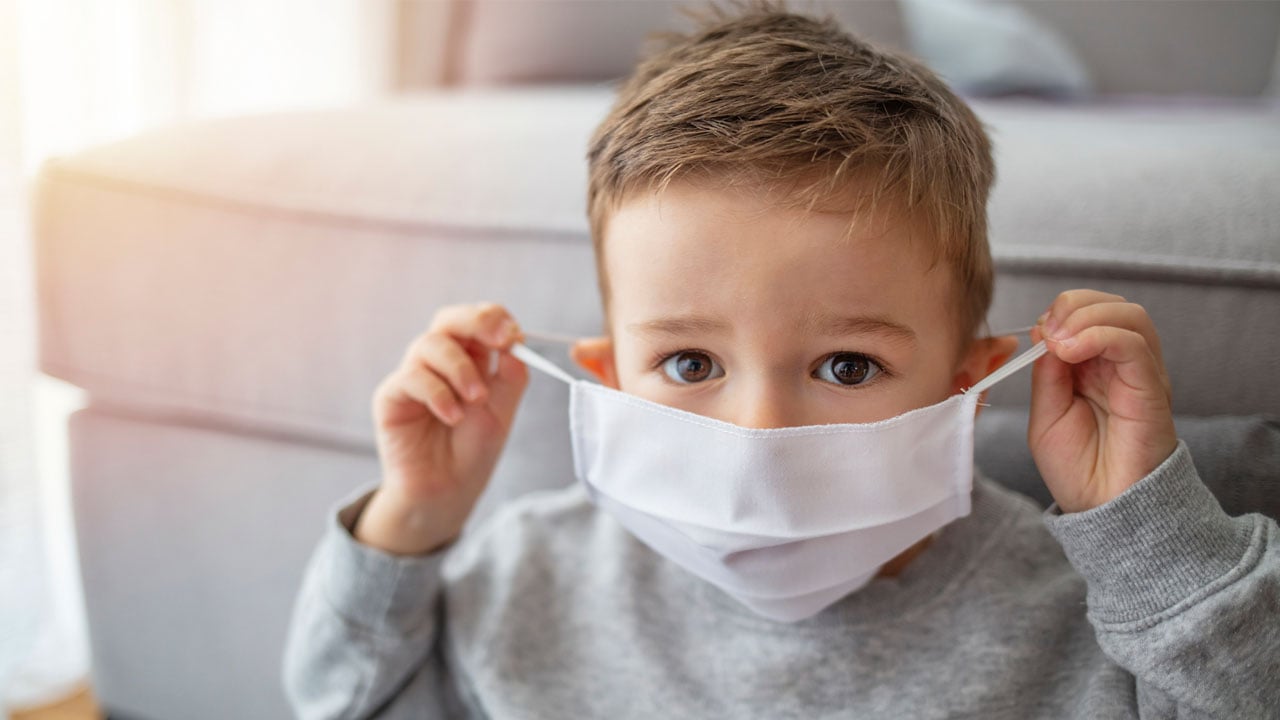Most kids in Canada no longer need to wear masks at school, but many health experts say wearing one is still a good idea. Here’s how to decide what’s right for your family.
When kids in Ontario head back to the classroom after their March break, there will be one very obvious change: They will no longer be required to wear masks at school.
B.C. schools are also dropping masks after spring break, and students in many other provinces no longer have to wear them.
Yet, at the same time, many credible health experts are saying it’s too soon to drop mask mandates and other pandemic measures in schools, especially after a week off when many families traveled and socialized more than usual. And while some pandemic-weary parents are eager to ditch masks as soon it’s allowed, others are concerned about sending their kids to classes where they’ll sit tete-a-tete with unmasked classmates.
How can parents figure out what’s best for their family? Here are some things to consider.
Masks can be very effective
There has been plenty of research to show the benefits of mask-wearing during the pandemic. A recently released study funded by the National Institutes of Health, for example, found that schools with mandatory masking during the Delta wave had approximately 72 percent fewer cases of COVID transmitted at school compared to schools where masking was optional or there was only a partial masking policy.
On the other hand, not all masks are equal. A well-fitting medical mask or respirator offers much better protection than a cloth mask.
Masks haven’t been shown to harm kids’ development or ability to breathe
Despite plenty of concern among parents about how masks might affect children’s development, from having trouble reading emotions to difficulty hearing and learning speech, “there’s nothing in the literature about developmental issues coming from masks—and I’ve looked for it,” says Janine McCready, an infectious diseases doctor at Michael Garron Hospital in Toronto.
Public Health Ontario analyzed all of the available evidence about masks in children and released a summary in February. It found that there was no research that supported the idea of reduced respiratory function or cognitive issues from masks. It found mixed results on communication, psychological impacts, and skin problems—the studies reported contradictory findings and had a higher risk of bias.
We need layers of protection
Mask requirements are being lifted at the same time as other COVID-19 protections, like indoor gathering limits and vaccine passports. And at many schools, some previous pandemic rules, like cohorting, requiring teachers to be vaccinated, having students stay distanced when possible, and informing parents about positive cases in classes, will also drop. One way to provide some individual protection is to continue wearing a mask, at least until we see the impact of loosening restrictions.
Vaccines are more important than ever
With COVID restrictions, including masking, easing, it’s extra-important to protect yourself and your kid, at an individual level, by making sure everyone in your family is as vaccinated as possible. “If your child is double vaccinated, I’m a lot less concerned [about potential health impacts of COVID],” says Raywat Deonandan, an epidemiologist and science communicator. (Of course, for kids under five, vaccination isn’t an option yet.)
Your kid’s comfort matters
The most likely downside to wearing a mask is simply discomfort—something especially relevant for younger or daycare-aged children. “There’s a calculation everybody has to do. Is the stress of the child wearing the mask worth it? If you’re wrestling with your child, if they’re not wearing it well, or it makes them miserable, it might not be,” says Deonandan,
It’s toughest on the youngest kids
Younger children who are at daycare might not be mature enough to wear a mask all day. Masks in daycares are “less helpful” than they are in older grades, says McCready, because it’s harder for little kids to wear them well and consistently. But outbreaks have moved quickly through daycares, affecting a higher percentage of the kids in a classroom than they do for school-aged kids. It’s likely that the lack of masking is one reason why that happens.
That puts parents in a tough spot.
Children under two shouldn’t wear a mask, says the Government of Canada. If your child is two to five and isn’t bothered by wearing a mask, it’s probably worth it to send them in one, says McCready.
Your community’s risk matters
Another thing to consider is the risk of the people your child sees regularly—for example, immunocompromised grandparents or parents, younger siblings who can’t be vaccinated yet, or even a classmate or teacher who you know is high risk.
And it’s worth considering those two, three or even five, contacts down the line as well, says Deonandan. “There’s individual risk, and then there’s population risk. Kids are at low risk of symptomatic disease, and having bad outcomes, especially if they’re vaccinated,” he says, adding that long COVID might be an exception to that, but we don’t understand it well enough yet to know. “But putting that individual risk aside, there’s something to be said for the morality of doing what you can so that the kid down the street who is immunocompromised doesn’t get sick.”
Masks are still encouraged
“People think this is saying, you don’t need to wear a mask indoors anymore, but that’s not what they’re saying,” says McCready. “It’s still strongly recommended. All of the public health officials and the school boards and the science table and the experts are all still advising and encouraging masking.” At some point, they might change that guidance to masking being seen as being optional, or permitted, instead of recommended—and that might be a better time to think about taking most kids’ masks off.
